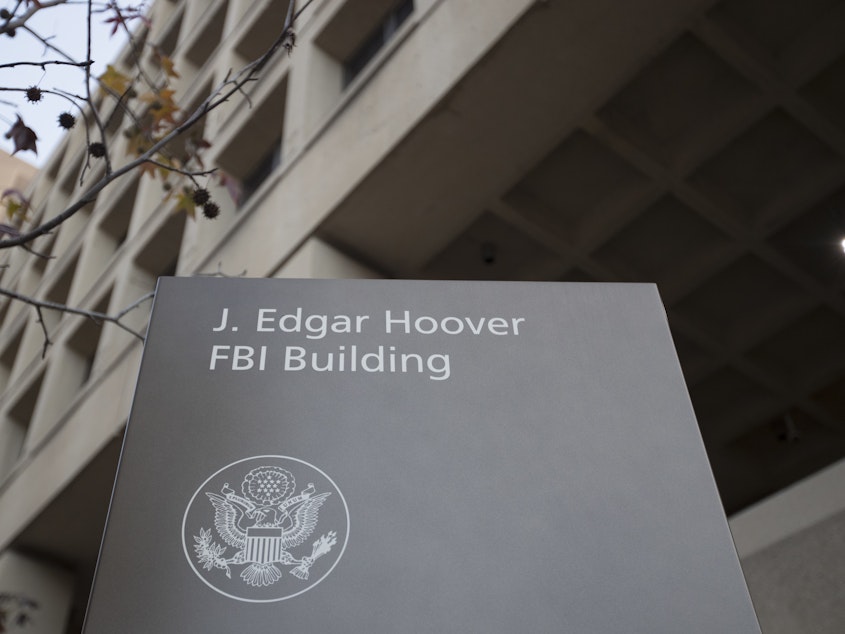Ex-FBI Lawyer Sentenced To Probation For Actions During Russia Investigation

A federal judge has handed down a one-year sentence of probation to a former FBI lawyer who pleaded guilty to doctoring an email used to get surveillance on a former Trump campaign adviser during the Russia investigation.
Kevin Clinesmith, who was also ordered to perform 400 hours of community service, told the court Friday at his sentencing hearing that he is "fully aware of the significance" of his actions and that he takes full responsibility.
"I am truly ashamed about the harms I have brought the FBI and the Justice Department through my actions," he said.
The case against Clinesmith was brought by special counsel John Durham as part of his investigation into the origins of the FBI's Russia probe. The former FBI attorney is the only person charged so far as part of Durham's investigation.
Clinesmith pleaded guilty last year to altering an email in 2017 that was used to get permission from the secretive Foreign Intelligence Surveillance Court to conduct surveillance on Carter Page, who had served as a foreign policy adviser to the Trump campaign.
Sponsored
As the FBI was putting together its application to the surveillance court, Clinesmith inserted text into an email from the CIA so that it said Page was "not a source" for the agency. The original email had indicated that Page had provided information to the CIA.
Clinesmith pleaded guilty last year to one false statements charge for doctoring the document, although he said he believed the information he inserted was correct.
The government had asked for prison time for Clinesmith, arguing that his actions did long-term damage to the public's trust and confidence in the Justice Department, the FBI and the surveillance court.
"The act of altering the email to change its meaning may seem simple and like a momentary lapse, but the resulting harm is immeasurable," said department attorney Anthony Scarpelli.
Judge James Boasberg, who currently presides over the Foreign Intelligence Surveillance Court in addition to sitting on the U.S. District Court for the District of Columbia, agreed that Clinesmith's actions had harmed the surveillance court's reputation and forced reforms at the FBI.
Sponsored
But Boasberg said in his view, Clinesmith "likely believed" that the information he inserted into the email was true, and that he was just "taking an inappropriate shortcut" to save himself some work.
He also noted that Clinesmith obtained no personal benefit from his actions, and that the Justice Department's inspector general had found no evidence that Clinesmith acted out of political bias.
On top of that, Boasberg said, it's unclear the warrant wouldn't have been signed even without the altered email since there were "other significant errors and omissions" beyond Clinesmith's.
A lengthy report from the Department of Justice inspector general documented at least 17 errors and omissions in the surveillance application on Page.
Clinesmith's actions were undoubtedly wrong and harmful, Boasberg said, but "this conduct is the only stain on the defendant's character that I've been able to discern."
Sponsored
Clinesmith has lost his job and may never work in the national security field again, and he's been in the middle of a media hurricane since his conduct became public.
Boasberg said he weighed that against the harm Clinesmith caused and decided on a sentence of 12 months' probation. [Copyright 2021 NPR]



